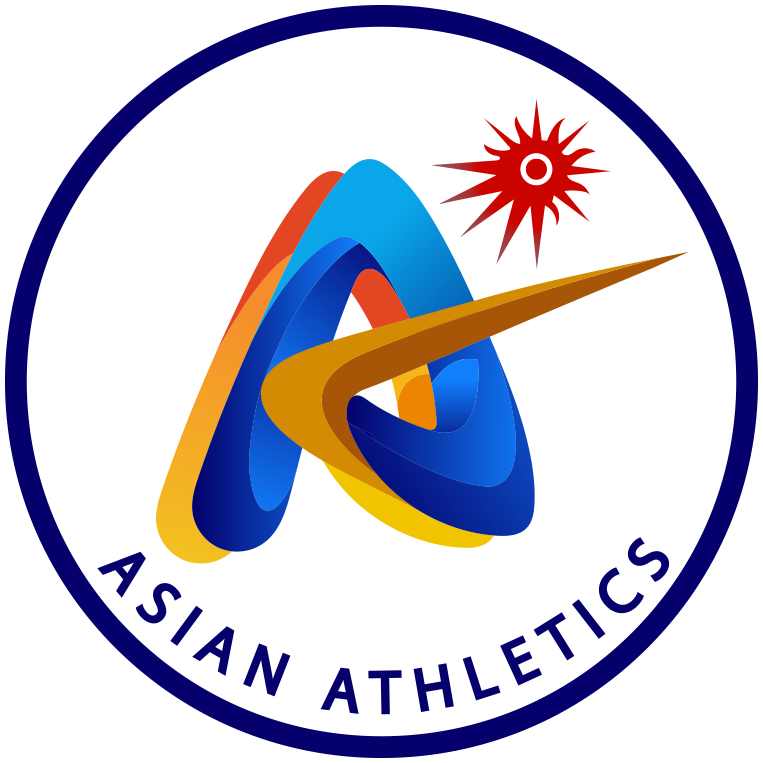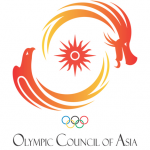HISTORY OF THE ASIAN ATHLETICS ASSOCIATION
The Asian Track and Field Championships were initially planned at the 1962 Asian Games through the initiative of Major General Aziz Salleh the Chief of the Indonesian Federation (PASI) but went a-begging by the “emergence” of the ill-conceived first and last Games of the Emerging Forces (GANEFO).
The Malaysian Amateur Athletic Union President Tan Sri Mohamed Ghazali Shafie tried to revive the idea to hold the Championships at the 1966 Asian Games at Bangkok but met no better fate as circumstances outside the control of athletics idealists intervened.
At the 1970 Asian Games, the Punjab State Sports Minister, Sardar Umrao Singh, took up the challenge and planned to host the First Asian Championships at Delhi and was finalized with Mr R.L. Anand appointed Director of the Organisation. Due to the political developments in the sub-Continent, thrust the plans not only out of gear but out of sight for another two years.
However, they kept up the tempo and though unable to hold the Championships, they called for a meeting of the Asian Athletic Team officials at the 1972 Munich Olympic Games. It was there that Governor Jose C. Sering, President of the Philippines Track and Field Association (PATAFA) took up the challenge and history was made when the First Asian Track and Field Championships got off the launching pad and was held at the Marikina Stadium near Manila in November 1973.
The Constitution of the Asian Amateur Athletic Association and the Rules governing the Asian Track and Field Championships were endorsed as amended at the First Asian AAA Congress Meeting at Manila, the Philippines, in November 20-21, 1973 and Governor Jose C. Sering became the first President of the adequately constituted Asian Amateur Athletic Association and Mr Maurice R. Nicholas of Singapore, the first Secretary-General. The Asian AAA Constitution presented at the 29th Congress of the International Amateur Athletic Federation was held in Rome, August 29-31, 1974 and was accepted after voting.
The first Constitution of the Asian AAA ruled that Presidents served only their term of office until after the Championships. During the second Championship held at Seoul, Mr Lee Choo Hoon who was then the President of the Korea Amateur Athletic Federation became the Association’s second President. However, Mr Lee Choo Hoon served beyond his term of office of two years, as there was no host for the 3rd Championships because of the conflict in the middle east between Israel and the Arab Countries. Once again, the circumstances beyond the control of athletic idealists intervened.
An extra-ordinary Congress of the Asian AAA was held in Seoul on the 18th of February 1978 to resolve the issue and to prevent the demise of the Asian Championships. It was at this Congress that the Japan Amateur Athletic Federation came to the rescue by announcing that they would organise the 3rd Championships. The Congress at Tokyo held on May 30, 1979, elected Mr Seiko Yasuda as the 3rd President of the Association. The Congress revamped the rules, to allow the members of the Council to serve four (4) year terms to ensure continuity. Further, there were no limitations to the number of terms a member may serve on the board of Council upon endorsement at the Congress Election.
Mr Seiko Yasuda served three terms over twelve years until his request for retirement in 1991. During his term in office, Mr Seiko Yasuda initiated many changes to Asian AAA. Asian Secretariat took up office in Singapore with Mr Maurice R. Nicholas taking charge and another in Japan with Mr Yasuda looking after the office in Tokyo and an official bank account registered in Singapore. It was during this period that the IAAF Council decided to provide an administration grant for area offices. Funds generated by Mr Yasuda increased the efficiency of the Association and communication between the Secretariat and the Members improved significantly. The Asian Secretariat was considered one of the best Secretariat by the IAAF.
During Mr Yasuda’s term in office, Japan hosted the 4th Asian Athletics Championships and introduced the first Asian Junior Athletics Championships in 1986 which was hosted by Indonesia. Subsequently, Japan also hosted the first Asian Marathon Championships. Mr Yasuda introduced Sponsorship programme for all Asian events. Asics Corporation sponsored the first Asian Track & Field Newsletter.
In 1991 Congress Election, held in Kuala Lumpur Malaysia, Mr Mohamad (Bob) Hasan became the 4th President of the Asian AAA and was also the President of Indonesian Amateur Athletics Federation (PASI). He organised the 6th Asian Athletics Championships in 1985 and the 1st Asian Junior Athletics Championships in 1986 in Jakarta.
At the 11th Congress held at Jakarta, Athletic Federation of the Republic of Kazakhstan proposed the change in the cycle of the Senior and Junior Championships from odd to even years for the Senior Championships and from even to odd years for the Junior Championships to be in phase with the world athletics calendar of events and to give our junior athletes a natural progress to our Senior Championship and the congress accepted. Due to these changes, the 7th Asian Junior Athletics Championships, held at Bangkok Thailand in 1997 and the 12th Asian Athletics Championships, held at Fukuoka Japan in 1998 respectively.
The 13th Congress Election, held in Jakarta, Indonesia, on 1st September 2000, was one of the most keenly contested elections and Shri. Suresh Kalmadi of India ousted Mr Mohammed Hasan by a narrow margin to become the 5th President to lead Asian AAA. It was also for the first time that the Congress took place after the four days of the 13th Asian Athletics Championships. This change would give the athletes ample time to prepare for the Sydney Olympics and the option to leave Jakarta early. It was during this Congress that the AAA of Sri Lanka had the honour of spearheading the next 14th Asian Championships. President, Shri. Suresh Kalmadi reversed the decision of the earlier 11th Congress to revert to the old format of having the Senior Championships in the odd years and the Junior Championships in even years.
Therefore the 10th Asian Junior Athletics Championships held at Bangkok Thailand in 2002 and the 15th Asian Athletics Championships held in 2003 Manila Philippines were reversed back to the old format. This arrangement took place at the Special Meeting of the Congress at Edmonton, Canada, on 31st July 2001.
In the year 2013, at the 20th Elections Congress and 20th Asian Athletics Championships held in Pune, India, the term of office of the Council was changed for two (2) years until 2015 when the IAAF had its next Elective Congress in 2015. The rationale for this transitional change was to fall in line with the timeframe of the IAAF’s Elective Congress. After that, the Elective Congress of the Association will revert to every four (4) years after 2015.
It was also at this Elections Congress in 2013 held in Pune, India that General Dahlan Al-Hamad from Qatar was elected the 6th President of the Asian Athletics Association. During his stint in office, he initiated various Commissions to streamline effective functioning of Asian AA and the first Asian Youth Athletics Championships at Doha, Qatar in 2015 for the development of youth athletics and respectively. After Mr Seiko Yasuda, General Dahlan was the second President to bring in sponsorship with the aim of ensuring Asian AA is self-sufficient.
In 2015, during the Congress Election in Wuhan China, General Dahlan was returned unopposed as President.
2019 Election Congress held in Doha-Qatar was the most keenly contested election in the history of AAA. General Dahlan was given a clear mandate by the congress and was returned as President for the third term. It was also the first time in history that a majority of new and young and vibrant Council Members became office bearers. In the pipeline, there are many more initiatives proposed by the President and new Council Members to set the next milestone in Asian AA history.
The major highlight for 2019 was that the secretariat office was re-located and inaugurated on 15th July 2019 in Thailand. Maurice Nicholas, the founding member and the first Secretary-General cum Treasurer of Asian Athletics Association, retired from office after serving for almost 46 years. General Dahlan and the Council endorsed Mr A Shuggumarran as the Secretary-General for AAA.


